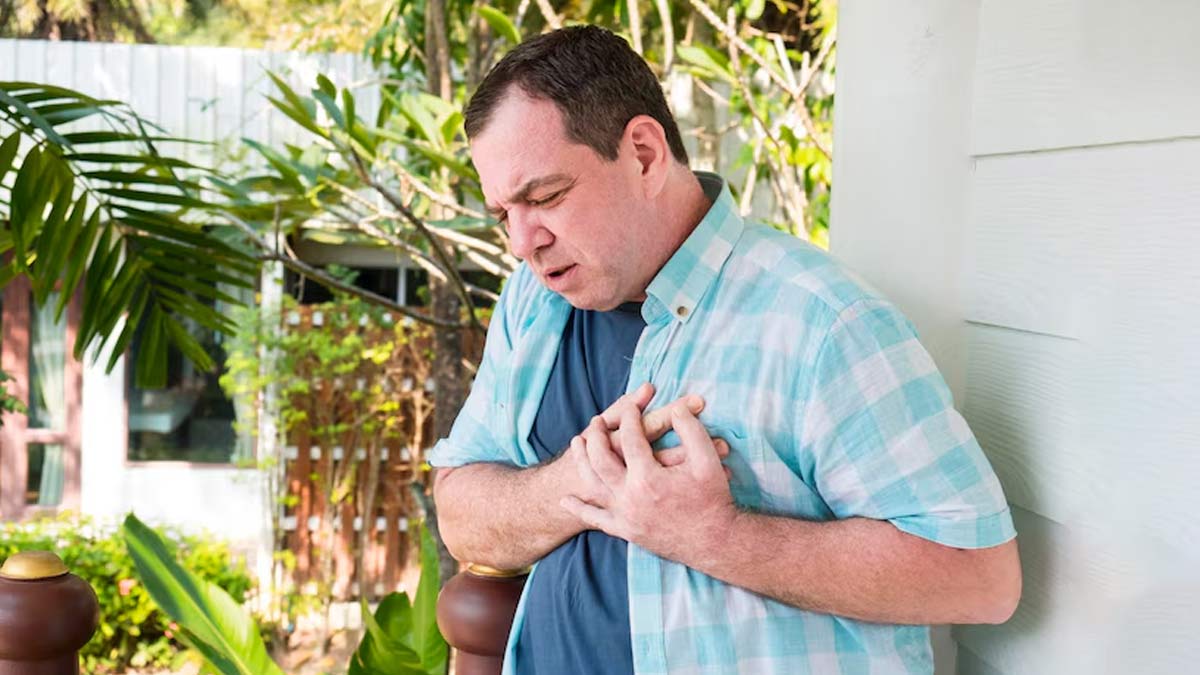
As summer intensifies, severe heat waves with rising temperatures are plaguing some parts of India. Such extreme temperatures can have serious effects on the human body including heat stroke, heat exhaustion, dehydration, heat cramps, and the most serious one being heart attacks.
Table of Content:-
Any kind of extreme temperature can affect your heart though, the probability of heart attacks in winter is the most talked about. However, one needs to watch out for summer as well. While people with a normal heart can adapt their body functioning to high temperatures, for individuals with underlying conditions, heat can impact their heart.
According to Harvard Medical School, rising temperatures can cause the body to work harder to maintain its normal body temperature and this leads to increased heart rate and blood flow. This causes the heart to beat faster and may lead to elevated blood pressure. High blood pressure can thicken the walls of your blood vessels causing blockages and further leading to a heart attack.
Preventing heart attacks during the summer months requires special attention because of the combination of heat and other factors that can stress the cardiovascular system. To learn ways to prevent heart attack in the summer, the OnlyMyHealth team interacted with Dr Amit Chaurasia, Chief Cardiology & Interventional Cardiology, Artemis Hospitals, Gurugram.
Here are seven essential ways to keep your heart healthy and reduce the risk of a heart attack during the summer.
1. Stay Hydrated

Dr Chaurasia explained, “Dehydration can strain the heart and raise blood pressure, increasing the possibility of heart attack. Drink plenty of water throughout the day, especially when you are outdoors or engaging in physical activities.” Refrain from excessive consumption of caffeinated or alcoholic beverages, as they can contribute to dehydration, he added.
Also read: A Cardiologist Shares Whether A Heart Attack Can Be Detected Before It Occurs
2. Maintain a Healthy Diet

Go for light, nutritious meals that are low in saturated fats, cholesterol, and sodium. Include plenty of fruits, vegetables, whole grains, and lean proteins in your diet. Dr Charasia advised to avoid consuming heavy, high-calorie foods that can make you feel sluggish and increase the workload on your heart.
3. Stay Cool
As per Dr Chaurasia, high temperatures can put additional stress on the heart, especially for older adults and people with pre-existing heart conditions. Stay indoors during the hottest part of the day, use fans or air conditioning to keep your living space cool, and wear lightweight, breathable clothing. If you are going outside, seek shade and take frequent breaks in a cool, shaded area.
4. Exercise Safely
Regular physical activity is essential for heart health, but it's important to exercise safely during the summer months. Advising on exercising in summer, Dr Chaurasia said, “Avoid strenuous activities during the hottest times of the day and go for early morning or evening workouts when temperatures are cooler. Listen to your body and stop exercising if you experience any warning signs, like chest pain, dizziness, or shortness of breath.”
5. Protect Against Sun Exposure

Prolonged exposure to the sun can cause sunburn, heat exhaustion, and heatstroke, all of which can strain the heart, Dr Chaurasia said. Wear sunscreen with a high SPF, protective clothing, and a wide-brimmed hat when spending time outdoors. Seek shade whenever possible, and avoid outdoor activities during peak sun hours.
Also read: What Are 3 Warning Signs Of A Heart Attack?
6. Manage Stress
Summer activities and social events can sometimes lead to increased stress levels, which can hurt heart health. Dr Chaurasia emphasised on practising stress-reduction techniques like deep breathing, meditation, yoga, or spending time in nature. He also advised indulging in activities that you enjoy and prioritise relaxation.
7. Know the Warning Signs
Be aware of the warning signs of a heart attack, including chest pain or discomfort, shortness of breath, nausea, lightheadedness, and pain or discomfort in other areas of the upper body such as the arms, back, neck, or jaw. If you experience any of these symptoms, get medical attention immediately.
Conclusion
By implementing these strategies, you can help protect your heart and reduce the risk of a heart attack during the summer months. Make sure to prioritise your health and well-being, and don't hesitate to seek medical advice if you have any concerns about your heart health.
Also watch this video
How we keep this article up to date:
We work with experts and keep a close eye on the latest in health and wellness. Whenever there is a new research or helpful information, we update our articles with accurate and useful advice.
Current Version
